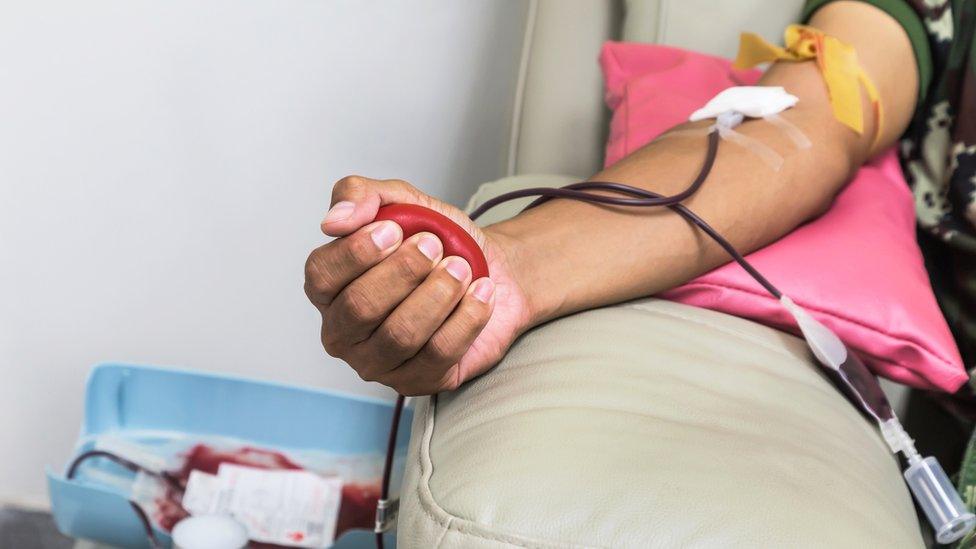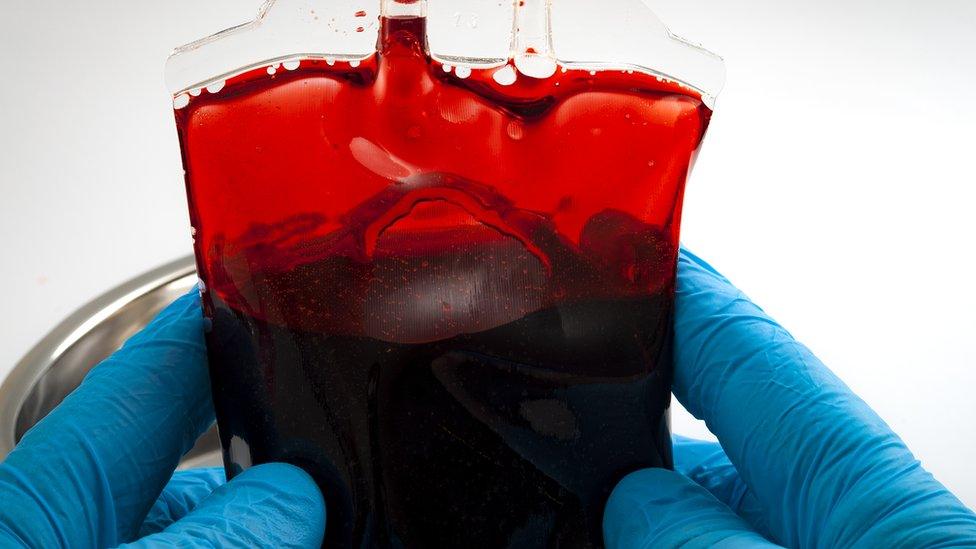Donation change to allow more gay and bisexual men to give blood
- Published

More people will be able to donate blood under the new scheme from summer 2021
Men in Scotland will no longer be automatically barred from giving blood if they have had sex with another man in the past three months.
Scotland's public health minister said a "fairer" assessment would be made to determine a person's risk of passing on blood-borne infection.
It will mean changes to the questions asked by the transfusion service about a man's recent sexual behaviour.
The change is expected to take effect in the summer 2021.
The NHS across the UK has previously publicised challenges with blood stock, encouraging men to donate.
The high level of iron present in male blood makes it helpful to patients who rely on specialist transfusions, such as newborn babies.
Prior to 2011, men who have sex with men were not able to donate blood at all in the UK.
However, this changed in 2017 when rules were relaxed in England, Scotland and Wales to allow them to give blood if they had abstained from sexual activity for three months.
In Scotland from next summer, anyone wishing to donate blood will be given an individual risk assessment - which will see potential donors asked questions about their sexual behaviour.

The Scottish National Blood Transfusion Service, external (SNBTS) said all information provided by donors would be kept in confidence.
The changes follow recommendations by the group For the Assessment of Individualised Risk (FAIR), made up of leading medical and academic experts and LGBTI+ groups.
Public Health Minister Joe FitzPatrick said: "We are committed to equality and inclusion, and these changes will ensure a fairer and more up to date assessment of risk is applied to both men and women to identify whether donors may be at risk of a blood-borne virus infection."
SNBTS director Craig Spalding said: "Donor eligibility based on personal risk assessments, rather than on broader demographic information such as sexuality, is a welcome change.
"We are grateful for all the donors of Scotland and are looking forward to welcoming a broader cross section of the population, in particular those men who have sex with men who will be able to donate blood under the new criteria."